 Congratulations to Dr. Pramod Regmi on having two papers published in the latest issue of the Journal of Health Promotion which appeared online this week. The first paper reports on eight focus group discussions (FGDs) which explored: (a) perceptions of and motives toward social media re. sexual communication in educated unmarried young people in Nepal; and (b) their views of the link between social media and risky sexual behaviour. [1]
Congratulations to Dr. Pramod Regmi on having two papers published in the latest issue of the Journal of Health Promotion which appeared online this week. The first paper reports on eight focus group discussions (FGDs) which explored: (a) perceptions of and motives toward social media re. sexual communication in educated unmarried young people in Nepal; and (b) their views of the link between social media and risky sexual behaviour. [1] 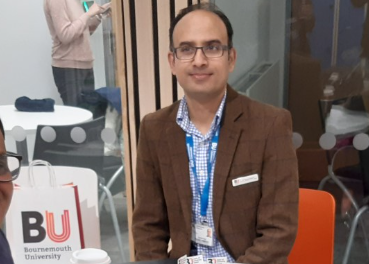 These FDGs were audio recorded, transcribed and thematically analyzed. All FGD participants were students (age range 15-22) from Kathmandu. Five themes emerged from the thematic analysis: a) use of and motives for using social media; b) sex education in general; c) sexual information through social media; d) social media’s role in forming romantic and sexual relationships; and e) negative experience of social media.
These FDGs were audio recorded, transcribed and thematically analyzed. All FGD participants were students (age range 15-22) from Kathmandu. Five themes emerged from the thematic analysis: a) use of and motives for using social media; b) sex education in general; c) sexual information through social media; d) social media’s role in forming romantic and sexual relationships; and e) negative experience of social media.
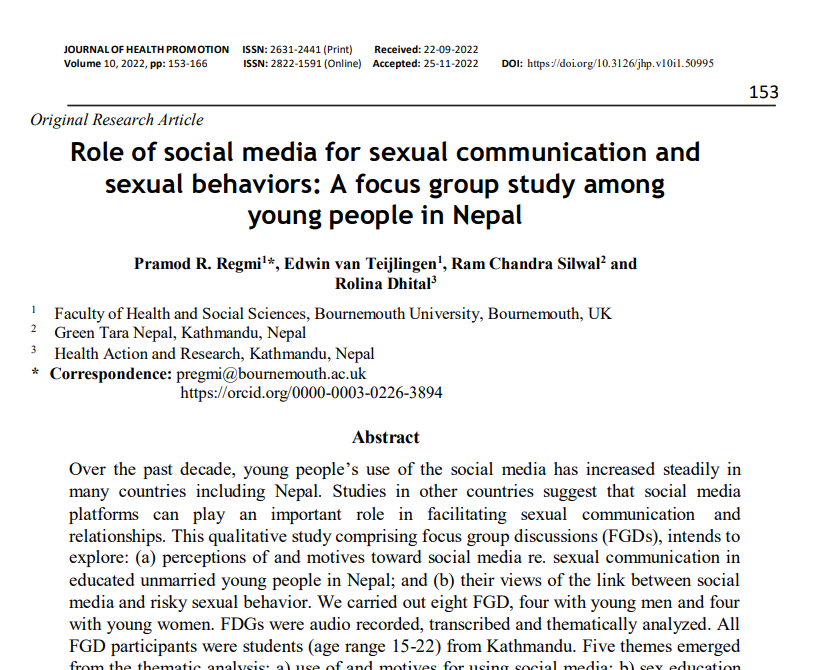 The second paper ‘Forgotten health and social care needs of left-behind families of Nepali migrant workers’ is led by FHSS PhD student Yagya Adhikari. This paper focuses on Pramod’s other research interest of the health and well-being of Nepali migrant workers. [2] The journal Journal of Health Promotion is freely available online through Open Access. Pramod is Senior Lecturer in International Health as well as Global Engagement Lead in the Department of Nursing Sciences.
The second paper ‘Forgotten health and social care needs of left-behind families of Nepali migrant workers’ is led by FHSS PhD student Yagya Adhikari. This paper focuses on Pramod’s other research interest of the health and well-being of Nepali migrant workers. [2] The journal Journal of Health Promotion is freely available online through Open Access. Pramod is Senior Lecturer in International Health as well as Global Engagement Lead in the Department of Nursing Sciences.
Well done!
Professor Edwin van Teijlingen
CMMPH (Centre for Midwifery, Maternal & Perinatal Health)
References:
- Regmi, P.R., van Teijlingen, E.R., Silwal, R.C., Dhital, R. (2022) Role of social media for sexual communication and sexual behaviors: A focus group study among young people in Nepal. Journal of Health Promotion, 10(1):153–166.
- Adhikari, Y.R., Regmi, P.R., Devkota, B., van Teijlingen, E.R. (2022) Forgotten health and social care needs of left-behind families of Nepali migrant workers. Journal of Health Promotion, 10(1):1–4.

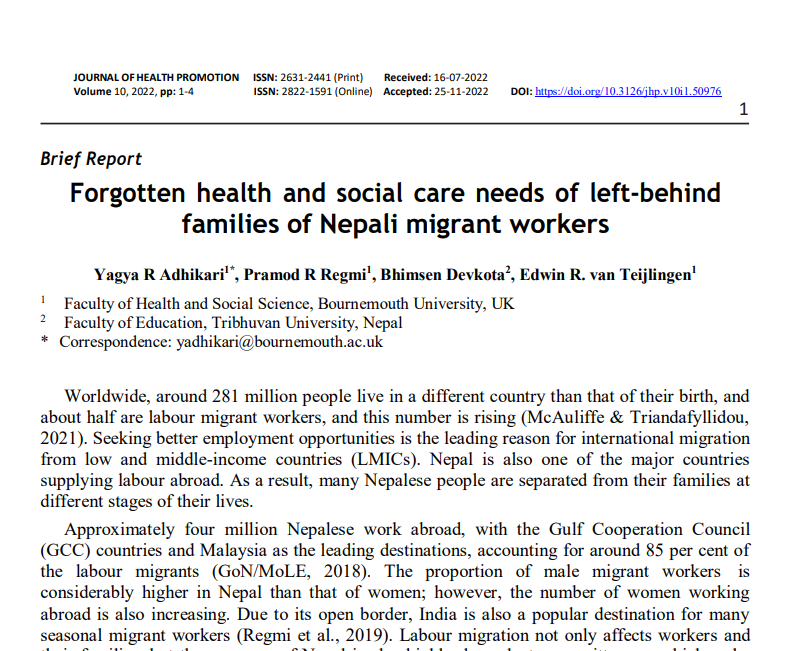
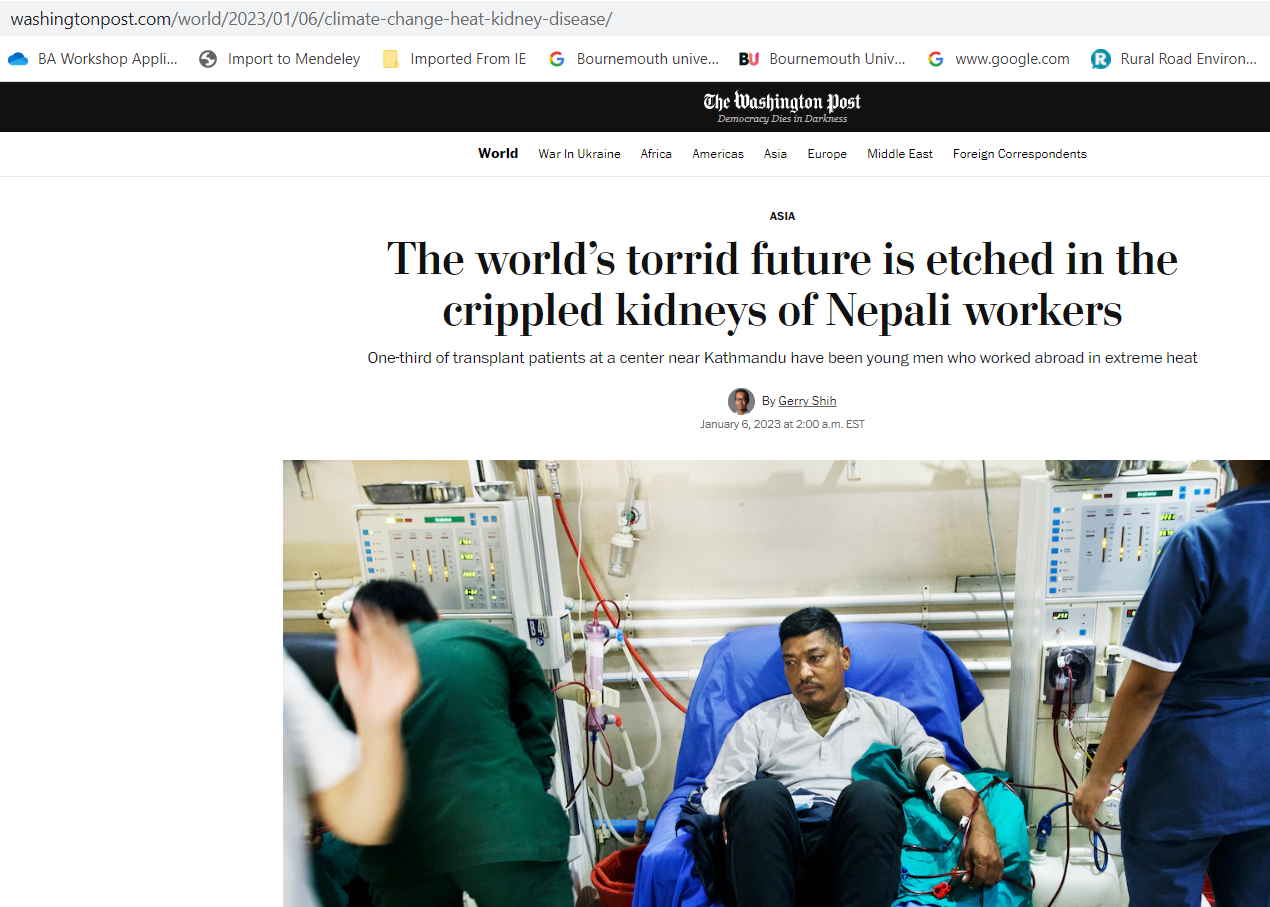

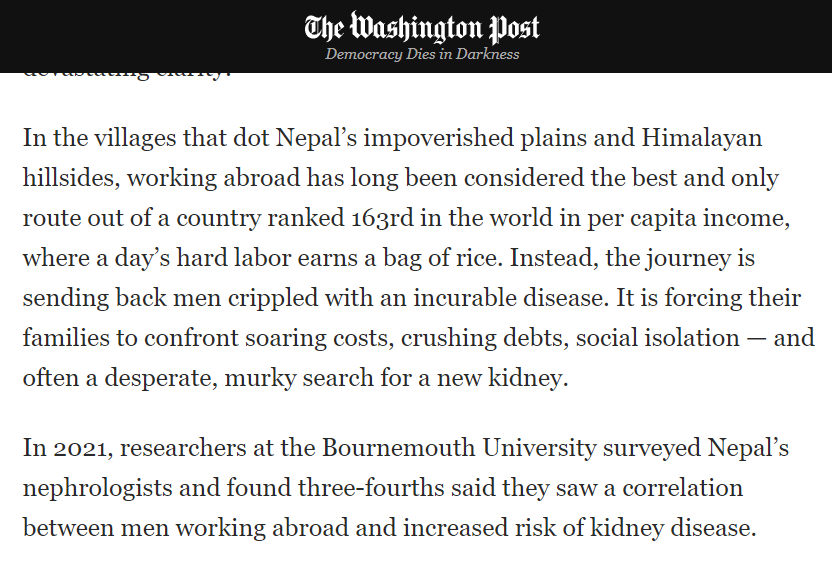
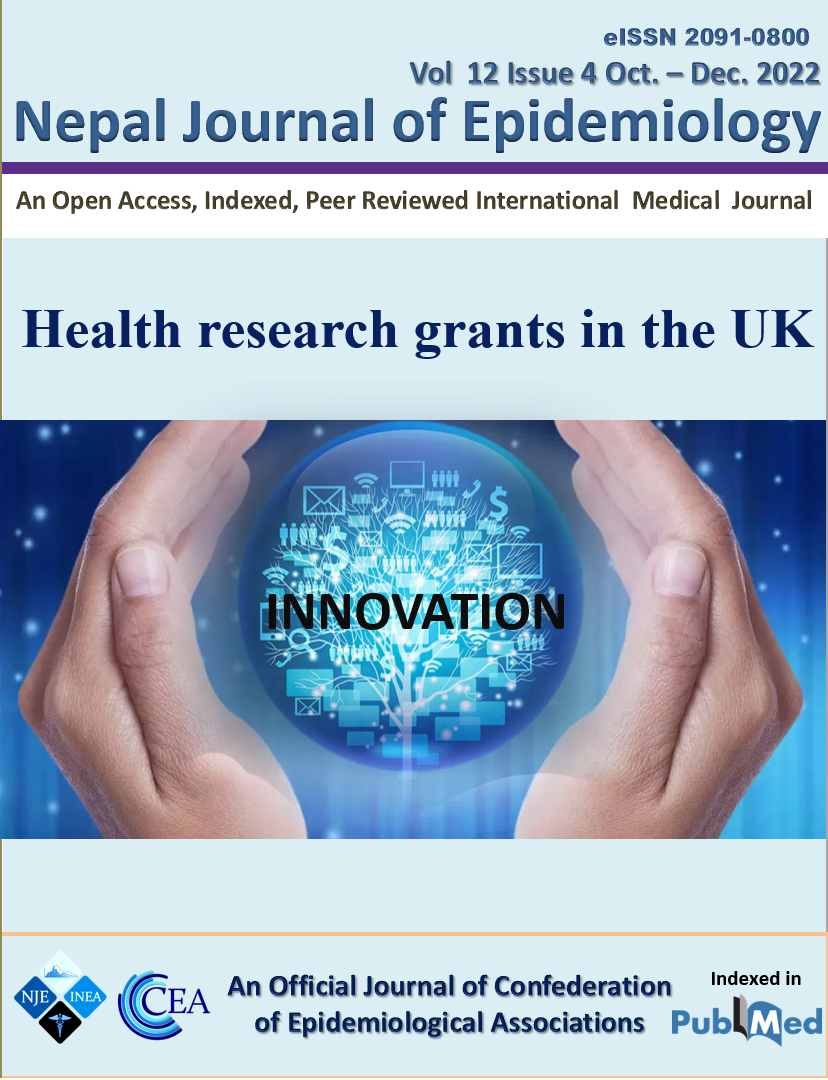
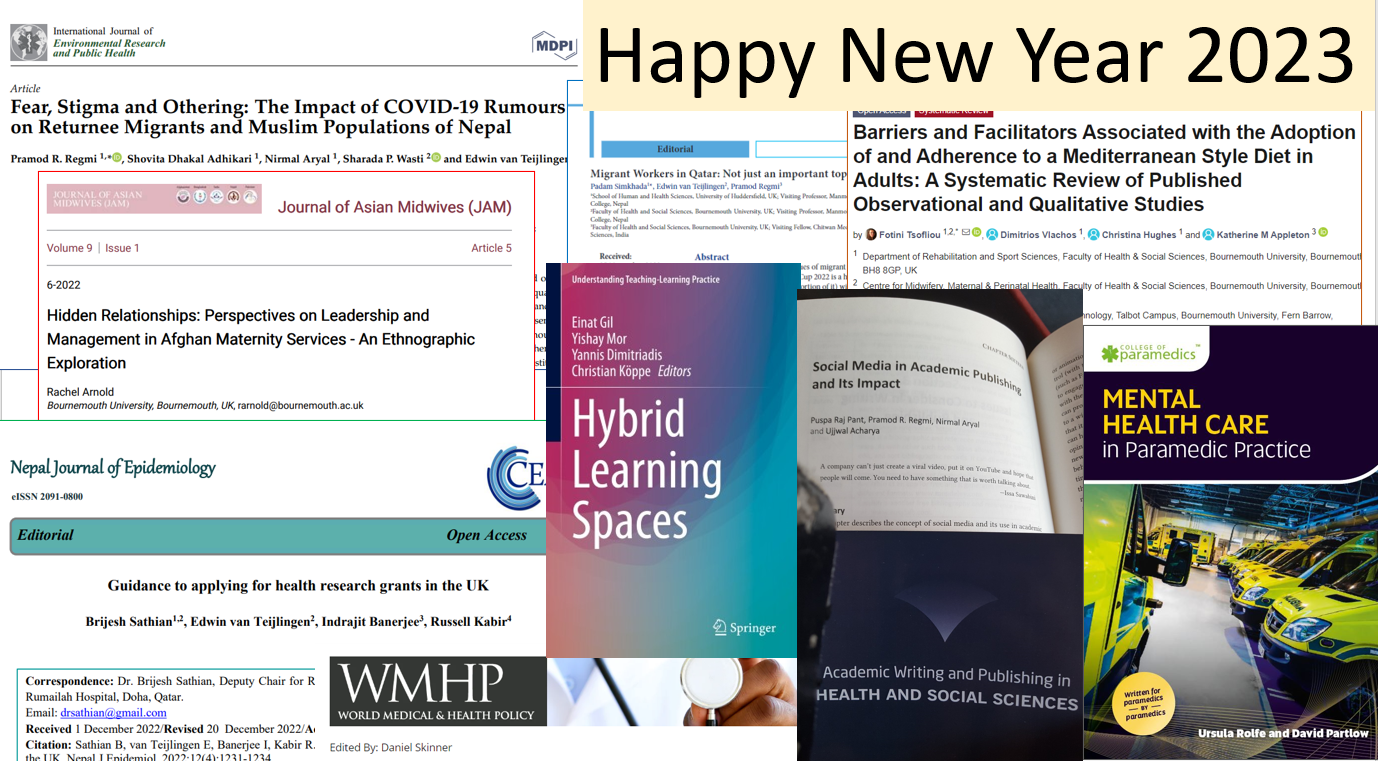
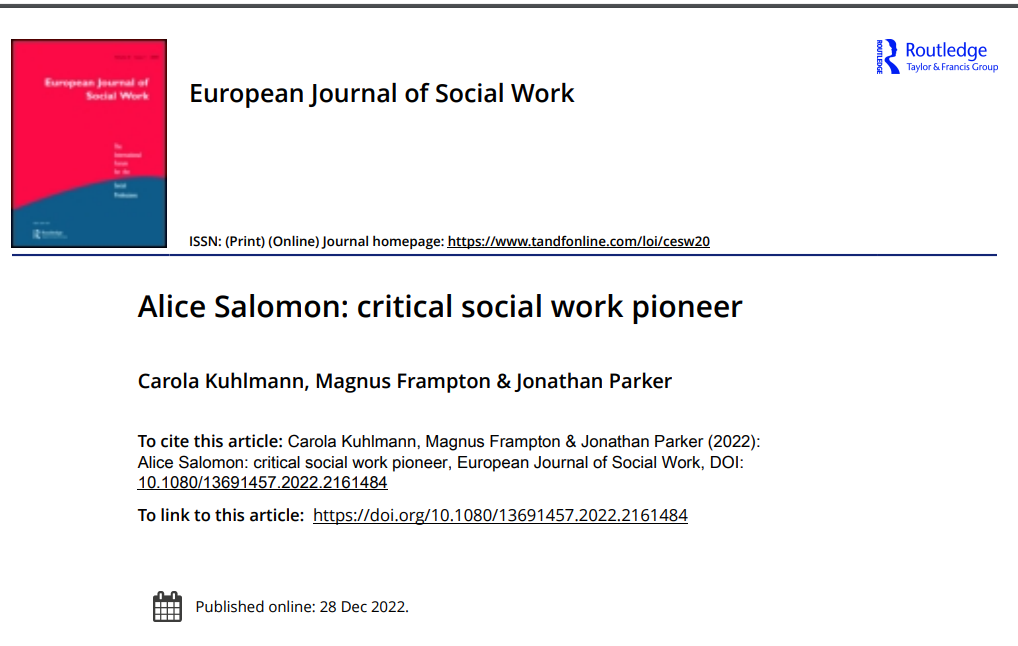
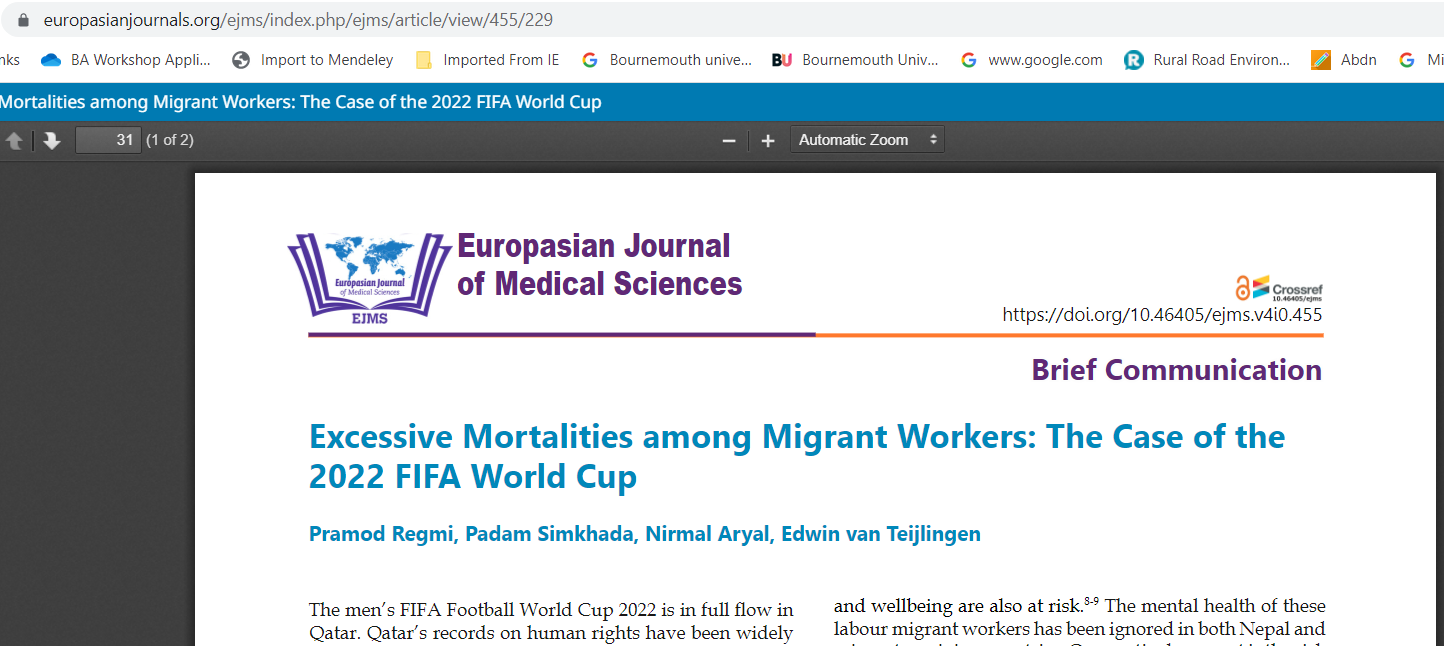

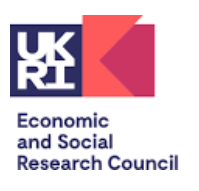



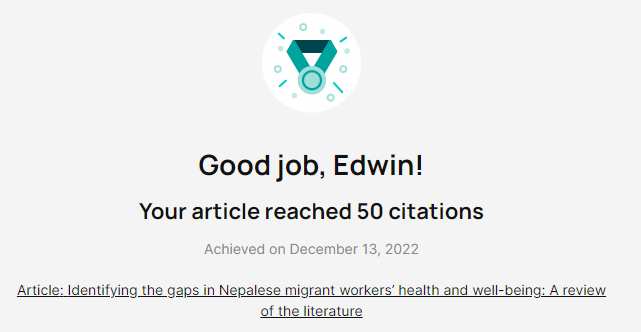

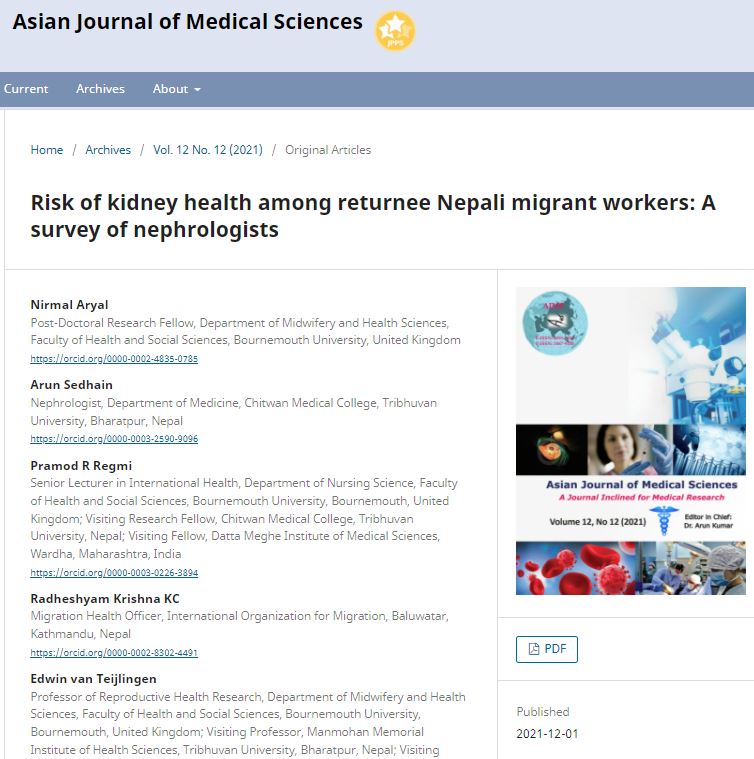
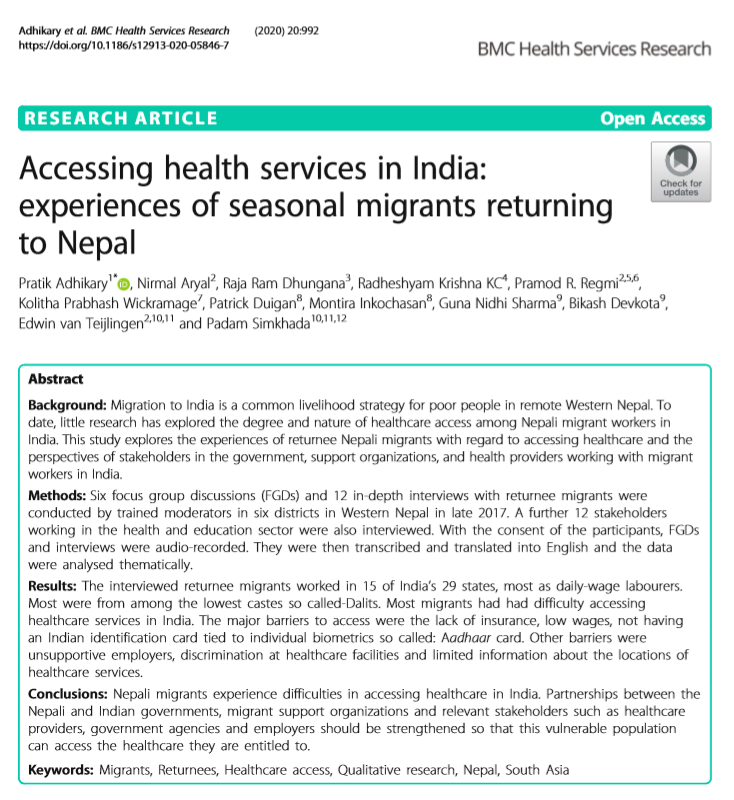



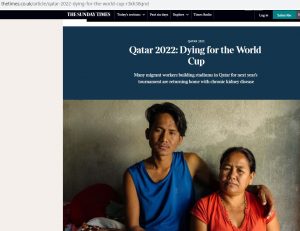

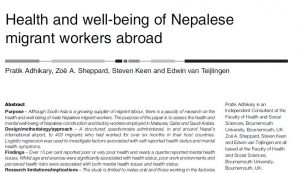
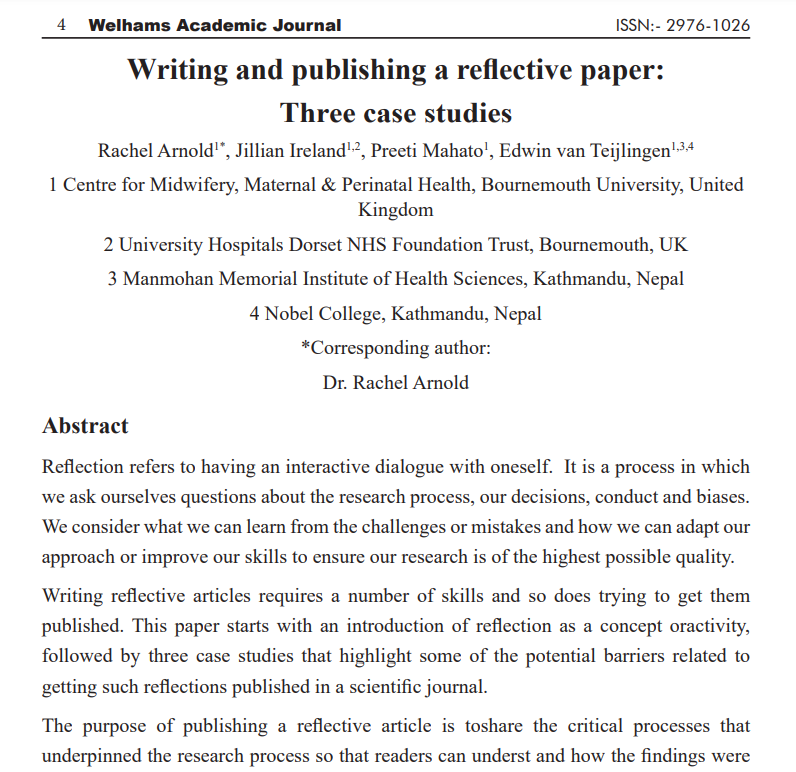












 Writing policy briefs
Writing policy briefs Upholding Excellence: The Concordat to Support Research Integrity
Upholding Excellence: The Concordat to Support Research Integrity Today’s Documentation Will Serve Tomorrow’s Justice
Today’s Documentation Will Serve Tomorrow’s Justice Up2U: New BU academic publication
Up2U: New BU academic publication New BU midwifery paper
New BU midwifery paper ECR Funding Open Call: Research Culture & Community Grant – Application Deadline Friday 12 December
ECR Funding Open Call: Research Culture & Community Grant – Application Deadline Friday 12 December MSCA Postdoctoral Fellowships 2025 Call
MSCA Postdoctoral Fellowships 2025 Call ERC Advanced Grant 2025 Webinar
ERC Advanced Grant 2025 Webinar Horizon Europe Work Programme 2025 Published
Horizon Europe Work Programme 2025 Published Horizon Europe 2025 Work Programme pre-Published
Horizon Europe 2025 Work Programme pre-Published Update on UKRO services
Update on UKRO services European research project exploring use of ‘virtual twins’ to better manage metabolic associated fatty liver disease
European research project exploring use of ‘virtual twins’ to better manage metabolic associated fatty liver disease